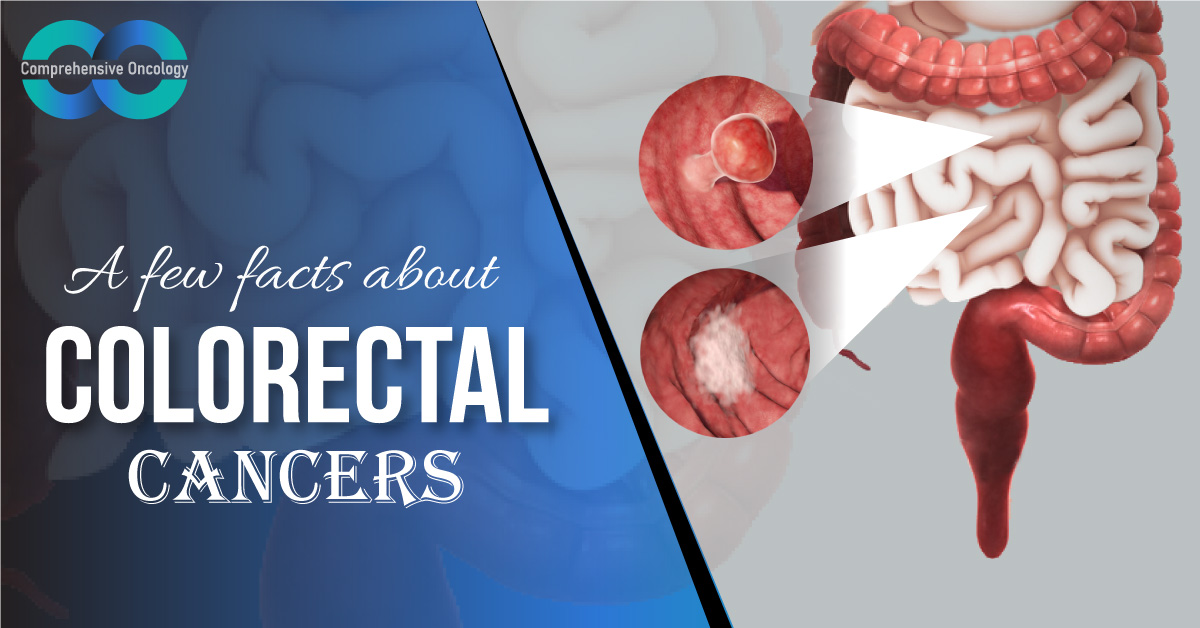- Mon-Sat (9am - 5pm)
- Aditi_aggi@yahoo.com
- +91-7982047515

Colon and rectum are the lower most part of the digestive system, also commonly called large intestine/bowel and rectum. Tha cancers of these organs together are called colorectal cancers.
These cancers are the third most frequent cancer in the United States. Even in India, this is the third most common cancer in females and males. The symptoms, therapy, and prognosis for colon cancer are all influenced by the stage of the disease at the time of diagnosis with excellent cure rates if detected early.
Learn about the stages, causes and symptoms of colon cancer, as well as resources to help you obtain care.
Colorectal cancer occurs when cells in the colon or rectum grow out of control or divide uncontrollably.The rectum connects the colon to the anus, the last segment of the alimentary canal, and the colon is also known as the large intestine or large gut.
Most colorectal cancer begins in polyps, which are tiny clusters of cells. When the normal cells that line the colon and rectum alter, they begin to grow abnormally and uncontrollably, resulting in polyps. These polys can grow into the large intestine wall and develop into a malignant tumour. However, not all polyps get malignant; it all depends on the type of polyp.
As you become older, your chances of developing colorectal cancer increase. This is a non modifiable risk factor.
Another risk factor is inflammatory bowel disease, such as Crohn's disease or ulcerative colitis.
The following are some of the lifestyle factors that may raise the risk of colorectal cancer. These are the modifiable risk factors.
There are no apparent symptoms in the early stages of colorectal symptoms, although they may become evident with time.
Hence the way to prevent colorectal cancer is to lead a healthy life with regular exercise, high fibre, low saturated fats, no processed foods, no alcohol, maintaining a healthy weight.
In case of any family history of such cancers or polyps in family or personal history of Crohns or Ulcerative colitis, consult an expert for regular tests like colonoscopy to detect any earliest abnormalities in your digestive system. In case of any change in your bowel habits or symptoms mentioned above, get yourself tested to prevent unwanted problems.
Stay aware stay empowered!!!!!!
Dr. Aditi Aggarwal has worked in radiation oncology for ten years, treating patients with thoracic cancer, gastrointestinal cancer, bone and soft tissue cancer, gynecological cancer, breast cancer, and neurological cancers.
As a medical doctor, Dr. Aditi Aggarwal holds an MBBS degree from Lady Hardinge Medical College Delhi, a MD degree in radiation oncology from VMMC and Safdarjang Hospital Delhi, as well as a post-doctoral diploma in cancer research from Catalyst Clinical Sciences in Pune.
Cancer is usually classified into four stages, with stage 0 being the earliest stage and stage IV being the most advanced. The stage of a cancer is an important factor in determining the prognosis and the best treatment options. Here's a brief overview of the different stages of cancer:
Stage 0: This is the earliest stage of cancer, and it refers to cancer that is still in its original place and has not spread to other parts of the body. It is also known as carcinoma in situ.
Stage I: This stage means that the cancer is still small and has not spread to other parts of the body. It may be treatable with surgery or other local treatments.
Stage II: At this stage, the cancer is larger and may have spread to nearby lymph nodes. It may be treated with surgery and/or radiation therapy, or other systemic treatments such as chemotherapy.
Stage III: This stage means that the cancer has spread to nearby tissues or organs and/or to distant lymph nodes. Treatment may involve a combination of surgery, radiation therapy, and/or systemic treatments such as chemotherapy.
Stage IV: This is the most advanced stage of cancer, and it means that the cancer has spread to other parts of the body, such as the liver, lungs, bones, or brain. Treatment at this stage is typically palliative, meaning that it aims to relieve symptoms and improve quality of life, rather than cure the cancer.
It's important to note that the staging of cancer can vary between different types of cancer and different systems used to classify the stages. Your healthcare provider can give you more information specific to your situation.
There is no single vaccine that can prevent or cure all types of cancer. However, some vaccines can help prevent certain viral infections that can increase the risk of certain cancers, such as the human papillomavirus (HPV) vaccine, which can help prevent HPV-related cancers such as cervical, vaginal, vulvar, and anal cancer.
Additionally, some cancers can be treated with a type of immunotherapy called cancer vaccines, which help stimulate the body's own immune system to recognize and attack cancer cells. These vaccines are still in the experimental stage and are only available through clinical trials.
However, there are many things you can do to reduce your risk of developing cancer, such as eating a healthy diet, maintaining a healthy weight, avoiding tobacco products, and getting regular cancer screenings. Your healthcare provider can give you more information on how to reduce your risk of cancer.
The symptoms of cancer can vary depending on the type and part of the body of cancer, as well as its stage. Some common symptoms of cancer include:
It's important to keep in mind that these symptoms can also be caused by other conditions, and not all of them are present in all cases of cancer. If you are experiencing any symptoms that are new or persist for a long time, it's important to talk to your healthcare provider to determine the cause and get appropriate medical attention. Early detection and treatment of cancer can often lead to better outcomes.
Through us, you can schedule a Dr. Aditi Aggarwal priority appointment. Request a callback or dial 7982047515 to reach us.